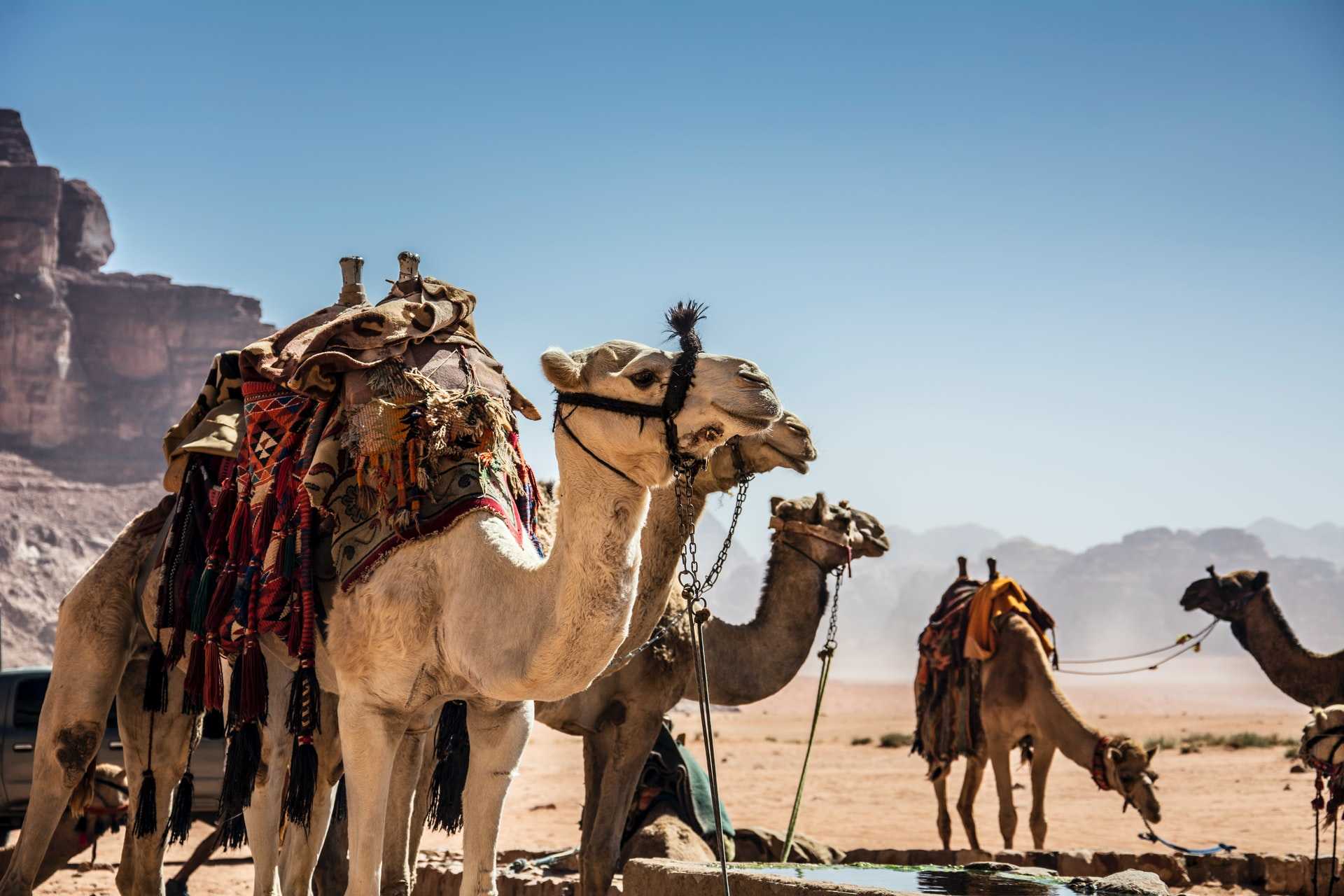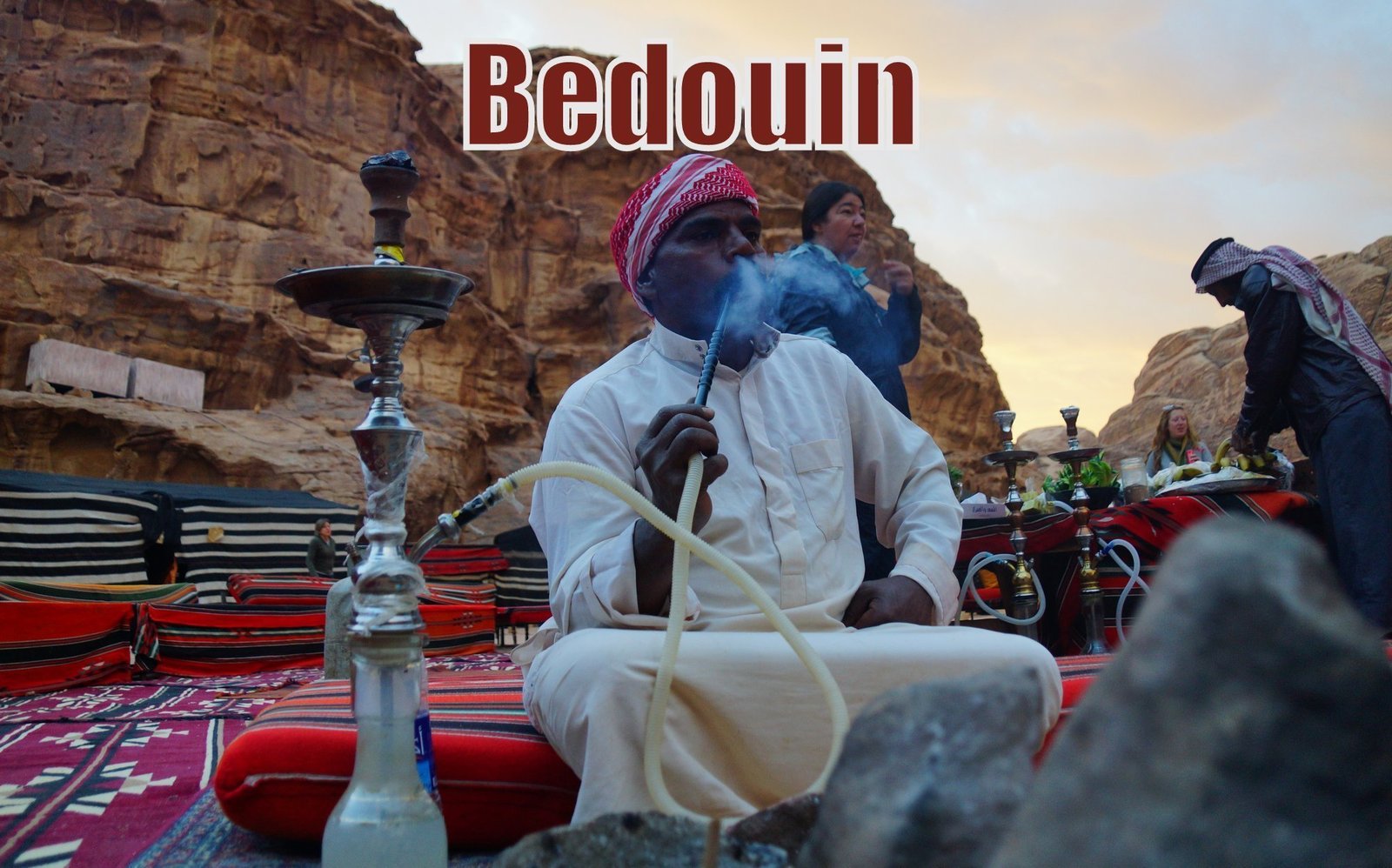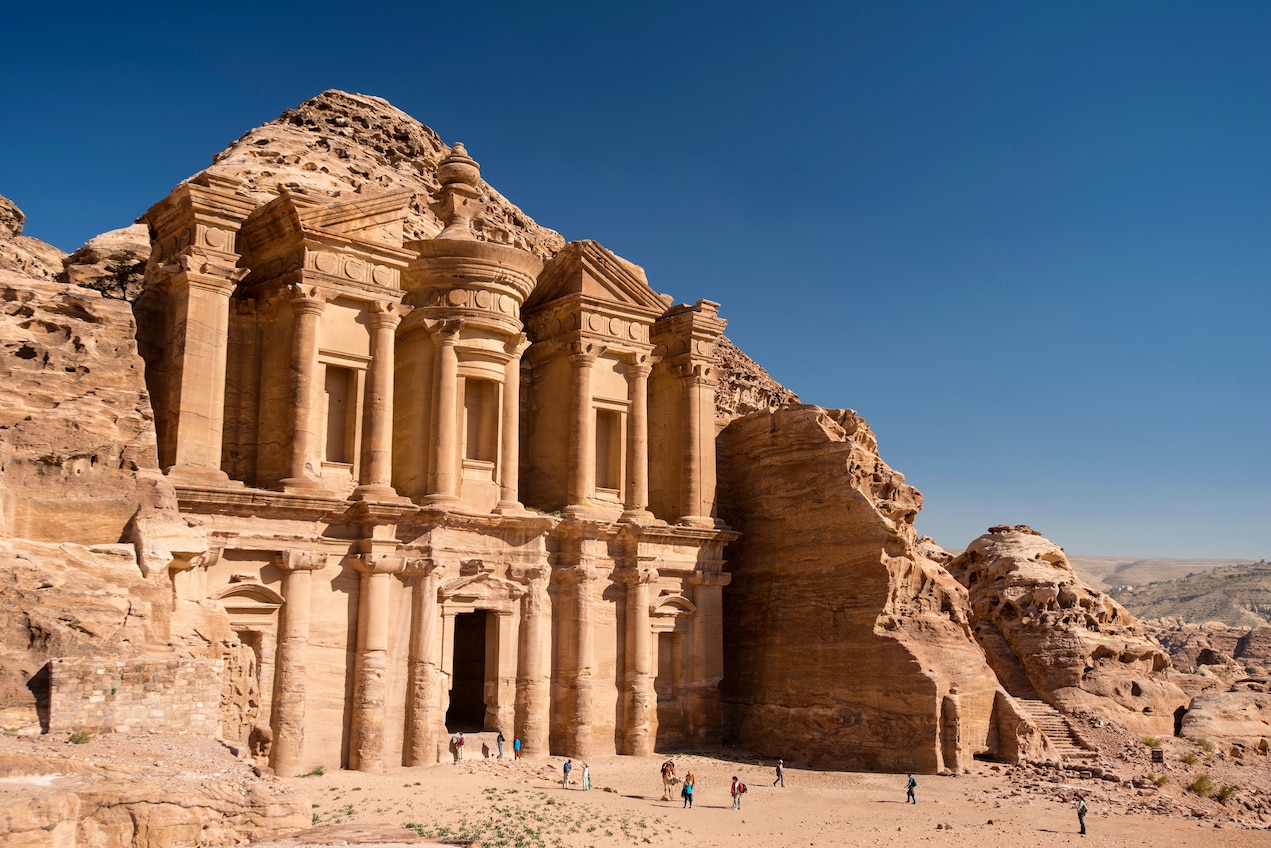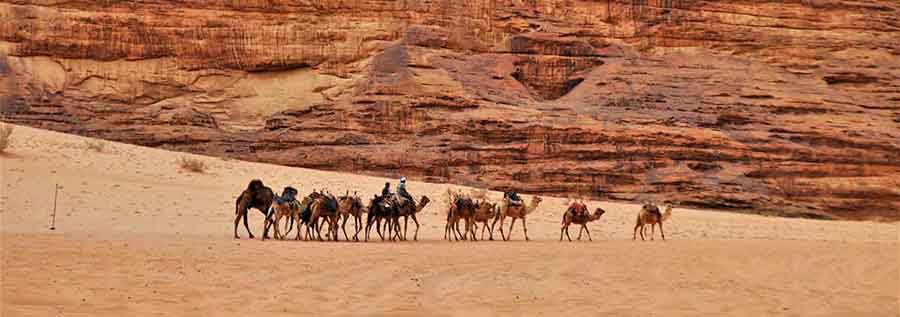Journey to the Heart of Jordan: A Cultural Tour of Bedouin Life
Welcome to the heart of Jordan, where ancient traditions and modern life intertwine. In this cultural tour, we invite you to dive deep into the fascinating world of Bedouin life. From the breathtaking Wadi Rum desert to the historical wonders of Petra, join us as we explore the rich heritage and hospitality of the Bedouins. With the guidance of knowledgeable local tour guides and drivers from Bedouin Tours, you'll have the opportunity to discover the hidden gems and must-see attractions of Jordan while immersing yourself in the traditions and customs of this captivating culture. So pack your bags and get ready for an unforgettable journey through the land of Bedouins.
Exploring the cultural heritage of Jordan
Jordan is a country rich in cultural heritage, with a vibrant history that spans thousands of years. Exploring the cultural heritage of Jordan allows visitors to experience the unique traditions and customs of the Bedouin people, who have played a significant role in Jordanian culture.
Bedouin life holds immense importance in Jordanian culture, as the Bedouin people have a deep connection to the land and traditionally rely on nomadic practices for their livelihood. The Bedouin people are known for their hospitality, with traditional customs emphasising generosity and welcoming guests into their homes.
Transportation options in Jordan vary depending on the region and the traveller's preferences. While public transportation such as buses and taxis are available, many visitors rent a car to explore the country at their own pace. Additionally, guided tours and excursions can provide a more immersive experience and a deeper understanding of the culture and history of the region.
Jordan's visa requirements and entry procedures differ depending on the traveller's nationality. It is essential to check the specific requirements and obtain the necessary documents before travelling to ensure a smooth entry into the country.
One of the highlights of exploring Jordan is the ancient city of Petra. This UNESCO World Heritage site is renowned for its mesmerizing architecture carved into the pink sandstone cliffs. Exploring the narrow, winding passage known as the Siq and discovering the iconic Treasury is an unforgettable experience.
The stunning landscapes of Wadi Rum, often called the Valley of the Moon, offer visitors a glimpse into the vast, rugged beauty of the Jordanian desert. Here, travellers can embark on a camel trek, take a jeep tour, or immerse themselves in the serenity of the desert.
Experiencing Bedouin hospitality in desert camps is a must for anyone visiting Jordan. Bedouin camps provide a unique opportunity to spend a night under the starry desert sky, partake in traditional Bedouin meals, and engage in cultural activities such as storytelling and music.
Overall, a cultural tour of Bedouin life in Jordan offers a fascinating journey through history, customs, and stunning landscapes, providing an enriching and unforgettable travel experience.

Importance of Bedouin Life in Jordanian Culture
Bedouin life plays a crucial role in Jordanian culture. The Bedouin people are an integral part of the country's heritage, and their traditions and way of life have been passed down through generations. They are known for their hospitality, resilience, and close connection to the land.
The Bedouins primarily live in the desert regions of Jordan, such as Wadi Rum and Petra. Their nomadic lifestyle revolves around raising livestock and trading goods. The Bedouins deeply respect nature and have developed sustainable practices that allow them to thrive in the harsh desert environment.
Visitors to Jordan have the unique opportunity to experience the Bedouin way of life firsthand. Staying in desert camps and interacting with Bedouin families provides a glimpse into their customs, traditions, and values. Sharing a meal with Bedouins around a communal fire, listening to their stories, and participating in cultural activities like camel rides and traditional dances allows for a rich and immersive cultural experience.
The Bedouin people have contributed greatly to Jordan's cultural and historical tapestry. Through their customs, traditions, and stories, they preserve their heritage and pass it on to future generations. Understanding and appreciating the importance of Bedouin life is key to fully embracing the cultural richness of Jordan.

Arriving in Jordan
Overview of transportation options
When planning a cultural tour of Jordan and exploring the heart of Bedouin life, it is essential to consider the various transportation options available:
-
Car Rental: Renting a car provides flexibility and freedom to explore Jordan at your own pace. Major car rental companies operate nationwide, and driving is relatively safe and straightforward.
-
Taxi: Taxis are widely available in cities and towns and can be hailed on the street or booked through a hotel. However, it is essential to negotiate the fare before starting the journey.
-
Public Buses: Jordan has an extensive public bus network that connects major cities and towns. This option is cost-effective, but buses can be crowded and less comfortable.
-
Private Tours: Opting for a private tour with a local guide can provide a hassle-free experience and deeper insights into the culture and history of Jordan. The guide can arrange transportation in a comfortable vehicle.
-
Domestic Flights: Domestic flights can be a time-saving option for longer distances. Jordan has several domestic airports, and flights operate between major cities.
It is important to plan transportation based on the areas you wish to explore and the level of convenience desired. Combining different modes of transportation can also provide a diverse and immersive travel experience in Jordan.

Information on visa requirements and entry procedures
When planning a trip to Jordan, it is important to be aware of the visa requirements and entry procedures:
-
Visa Requirements:
- Citizens of many countries can obtain a visa on arrival at Jordanian airports and land borders. The cost of a visa varies depending on the length of stay.
- Some nationalities are eligible for visa-free entry for a certain period. It is advisable to check the latest information from the nearest Jordanian embassy or consulate.
-
Visa Types:
- Tourist Visa: This is the most common visa for visitors travelling for leisure purposes. It is usually valid for one month and can be extended.
- Business Visa: If you travel to Jordan for business purposes, you may require a business visa. This allows for entry and engagement in business activities in the country.
-
Entry Procedures:
- Upon arrival in Jordan, travellers must present a valid passport and completed arrival card.
- Immigration officers may ask for additional documentation, such as evidence of accommodation, proof of sufficient funds, or a return ticket.
- It is advisable to have a copy of hotel reservations, travel insurance, and any other relevant documents readily available.
It is always recommended to check the latest entry requirements and visa regulations before travelling to Jordan to ensure a smooth and hassle-free journey.

Bedouin Lifestyle and Traditions
Understanding the history and significance of Bedouin culture
Understanding the history and significance of Bedouin culture is essential to appreciate Jordan's rich heritage truly. The Bedouin people are indigenous nomadic tribes that have inhabited the region for centuries and play a vital role in the country's cultural identity.
The Bedouin lifestyle revolves around hospitality, honour, and community. They deeply connect with the desert, relying on their instincts and skills to survive in harsh environments. Their knowledge of the desert's resources and natural remedies has been passed down through generations, making them experts in traditional medicine and survival techniques.
Traditionally, Bedouin communities were organized into tribes, with a sheikh as a leader and mediator. The sheikh's role is to maintain harmony within the tribe and resolve disputes. Bedouins value their social structure and take pride in their lineage, often tracing their ancestry back several generations.
Today, while many Bedouins have settled in urban areas, some still live nomadic or semi-nomadic lifestyles, herding livestock and preserving their customs and traditions. Visitors to Jordan can immerse themselves in Bedouin culture by staying in desert camps, experiencing traditional Bedouin hospitality, and participating in activities such as camel riding and traditional dances.
Here are some key aspects of Bedouin culture:
- Hospitality: Bedouins are known for their warm welcome and generosity towards guests.
- Traditional Dress: Bedouin attire typically includes the traditional headscarf (keffiyeh) and long robes (dishdashas).
- Sacred Values: Honor, loyalty, and respect are highly valued in Bedouin culture.
- Celebrations and Traditions: Weddings, births, and other significant events are celebrated with rituals and traditional dances like the dabke.
Understanding the history and significance of Bedouin culture allows visitors to engage with the local community, gain insights into their way of life, and forge meaningful connections during their journey through Jordan.

Exploring the customs and traditions of the Bedouin people
When visiting Jordan and experiencing Bedouin life, it is essential to understand and appreciate the customs and traditions of the Bedouin people. The Bedouins are nomadic tribes who have inhabited the deserts of Jordan for centuries. Their rich cultural heritage and traditions play a significant role in shaping the country's identity.
Here are some customs and traditions you might encounter during your journey:
-
Hospitality: Bedouins are known for their warm hospitality. Visitors are often greeted with open arms and offered a cup of traditional Bedouin tea, known as "shay." Accepting their hospitality is considered a sign of respect and appreciation.
-
Traditional Clothing: Bedouin men often wear a traditional dress called a "dishdasha," while women wear a long black dress called an "abaya." These traditional garments have practical purposes, protecting them from the harsh desert environment.
-
Camel Riding: Riding camels is a popular activity among the Bedouin people. It allows you to experience their traditional mode of transportation and explore the vast desert landscapes.
-
Traditional Cuisine: Bedouin cuisine is simple yet flavorful, consisting of dishes like mansaf (a traditional lamb and rice dish), zarb (a Bedouin barbecue cooked underground), and fresh bread baked in a traditional outdoor oven called a "taboon."
-
Music and Dance: The Bedouins have a rich musical heritage, with music playing an integral role in their social gatherings. You may have the opportunity to enjoy traditional music and witness traditional dances like the debkeh, a traditional line dance.
By immersing yourself in the customs and traditions of the Bedouin people, you can gain a deeper understanding of their way of life and contribute to preserving their cultural heritage.

Exploring Petra
A journey through the ancient city of Petra
A journey through the ancient city of Petra
A visit to Jordan is incomplete without exploring the ancient city of Petra. This UNESCO World Heritage site is a marvel of ancient engineering and architectural prowess. Carved into the rose-red sandstone cliffs, Petra reveals a stunning array of tombs, temples, and facades that showcase the artistry and sophistication of the Nabatean civilization.
To fully appreciate the grandeur of Petra, visitors can take a leisurely walk through the Siq, a narrow gorge flanked by towering cliffs that gradually opens up to reveal the iconic Treasury. From there, the city unfolds, with its intricate rock-cut facades, including the Monastery, the Royal Tombs, and the Great Temple.
Beyond the famous landmarks, a guided tour of Petra offers insights into the history and significance of this ancient city. Visitors can learn about the Nabatean people, their trade routes, and their cultural and religious practices. Local guides share fascinating stories and legends associated with the city, bringing its rich past to life.
Visitors to Petra can look forward to the following:
- Witnessing the breathtaking beauty of the Treasury, the most recognizable structure in Petra.
- Exploring the intricately carved rock-cut facades and tombs throughout the city.
- Discovering the ancient water system and observing the craftsmanship of the Nabateans.
- Climbing to the top of the Monastery for panoramic views of the surrounding landscape.
- Participating in various photography workshops and capturing stunning images of Petra's architectural wonders.
A journey through Petra is an unforgettable experience that allows travellers to immerse themselves in the mysteries of the past while marvelling at the remarkable achievements of ancient civilizations.
Learning about the archaeological wonders and historical significance of Petra
Petra, also known as the "Rose City," is an archaeological wonder and one of Jordan's most important historical sites. Built by the Nabataeans, an ancient Arab civilization, Petra was once a vibrant trading hub and served as the capital of the Nabataean Kingdom.
Exploring Petra allows visitors to marvel at the intricate architecture, unique rock-cut structures, and intricate carvings that have stood the test of time. The main highlight is the Treasury, an iconic façade carved into the rock face, which served as a tomb and showcased the exquisite craftsmanship of the Nabataeans.
This UNESCO World Heritage Site features an extensive network of pathways and tombs that lead to other remarkable structures such as the Monastery, the Royal Tombs, and the Great Temple. Each site offers a glimpse into the ancient city's grandeur and the skilled craftsmanship of its inhabitants.
Visitors can explore Petra on foot or hire a horse or camel to navigate the sprawling site. Guided tours are available to provide historical and cultural context, ensuring a deeper understanding of the significance of Petra.
While in Petra, visitors can also enjoy traditional Bedouin hospitality and experience local cuisine in the nearby village of Wadi Musa, which serves as a gateway to this archaeological marvel.
Wadi Rum: The Valley of the Moon
Discovering the stunning landscapes of Wadi Rum
As you journey through Jordan, one destination that should not be missed is the breathtaking Wadi Rum. Also known as the Valley of the Moon, Wadi Rum is a desert wilderness renowned for its awe-inspiring landscapes and rich Bedouin culture.
The surreal beauty of Wadi Rum lies in its towering sandstone mountains, reddish-orange dunes, and vast open plains. The dramatic rock formations create a surreal and otherworldly atmosphere, making it a popular location for filmmakers and nature enthusiasts.
Exploring Wadi Rum can be done in various ways. From guided tours in a 4x4 vehicle to camel rides or even hiking, there are plenty of options to immerse yourself in the beauty of this desert wonderland. Witness the colours of the landscape change as the sun sets, painting the sky with orange, pink, and purple hues. Spend the night in a traditional Bedouin camp and stargaze under the clear desert sky, away from the hustle and bustle of the city.
Wadi Rum is not just a visual feast but also a place of historical and cultural significance. The Bedouin people have inhabited this land for centuries and continue to thrive within its vast desert landscape. Visitors to Wadi Rum can interact with the friendly Bedouin community, learning about their customs, traditions, and way of life.
Whether you are an adventure seeker, nature lover, or history enthusiast, visiting Wadi Rum offers a unique and unforgettable experience. Explore the stunning landscapes, delve into the rich Bedouin culture, and create memories that will last a lifetime.

Experiencing Bedouin hospitality in desert camps
Experiencing Bedouin hospitality is essential to exploring the beauty of Jordan's desert landscapes. Bedouin camps offer visitors a unique opportunity to immerse themselves in the Bedouin people's traditional lifestyle and cultural traditions.
In the desert camps, visitors can enjoy a range of authentic experiences, such as:
-
Traditional Bedouin cuisine: Guests will have the chance to savour delicious Bedouin meals, which typically include dishes like Zarb (a slow-cooked meat and vegetable dish), Mansaf (a popular Jordanian dish made with lamb, rice, and yoghurt sauce), and tea brewed with fresh herbs and spices.
-
Traditional music and dance: Bedouin evenings often feature live performances of traditional music and dance, providing a chance to witness the rich cultural heritage of the Bedouin people. Guests may have the opportunity to join in the dancing and learn traditional Jordanian dance moves.
-
Stargazing opportunities: With minimal light pollution in the desert, Bedouin camps offer breathtaking stargazing experiences. Visitors can marvel at the spectacular night sky while learning about the Bedouin's deep connection to the stars and their significance in navigation and storytelling.
-
Camel rides and desert activities: Guests can embark on camel rides to explore the pristine dunes and picturesque desert landscapes. Some camps also offer activities like sandboarding, jeep tours, and guided hikes, allowing visitors to immerse themselves in the natural beauty of the desert fully.
By staying at a Bedouin camp, visitors can gain a deeper understanding of the Bedouin way of life, their customs, and their warm hospitality, creating memories that will last a lifetime.
